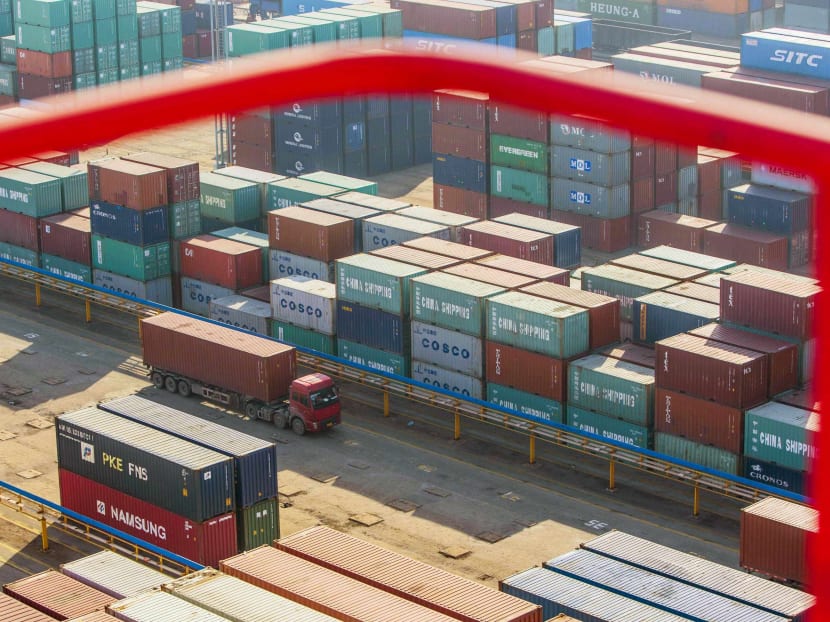Streamline customs procedures for smoother trading: Experts
SINGAPORE — While the One Belt, One Road initiative will lead to greater world trade and benefit the current flagging shipping industry, shipping executives said customs processes have to be streamlined to better facilitate the impending increase in the movements of goods.

A truck drives past shipping containers at a port in Lianyungang, Jiangsu province January 23, 2015. Reuters file photo
SINGAPORE — While the One Belt, One Road initiative will lead to greater world trade and benefit the current flagging shipping industry, shipping executives said customs processes have to be streamlined to better facilitate the impending increase in the movements of goods.
Speaking at a panel discussion at the inaugural Singapore Regional Business Forum today (July 27), chief executive of Maersk Line in Asia Pacific, Mr Lars Mikael Jensen, said the current differing standards and requirements across jurisdictions waste time and money.
“We did a study on shipments … We found that 50 per cent of the costs of actually moving goods is not related to the physical moves. It’s all stamps, approvals, processes and all that kind of stuff,” said Mr Jensen, who was one of the three panellists at a discussion on how the Chinese-led One Belt, One Road project will impact shipping and trade.
“The digitalised age will change the way trade is made, but there’s still a lot to be done in shipping… customs procedures are needed, but there are different rules in different countries, different requirements everywhere, there’s a need to simplify the processes,” he added.
Fellow panellist Calvin Leong, chief trade officer at APL, agreed. Mr Leong said predictability is the most important criteria every customs regime should have.
“Customers today do not necessarily want the fastest, they don’t necessarily care if it’s the slowest, what they want is it to be predictable so they can plan (around it) … If it’s predictably good one day and unpredictably bad another day, it’s a mess. We need to have consistently applied customs regimes. If we can streamline that, it’s even better,” he said.
Nevertheless, the panellists agreed that the One Belt, One Road initiative is a bright spot that the shipping industry can look forward to. The industry has been suffering from slower global trade and overcapacity.
Before the panel discussion, Senior Minister of State (Finance and Transport) Josephine Teo told the audience that the success of the mega Chinese project requires the collective will of all countries involved. She also said that Singapore can play an active in three key areas: transport, finance and trade.





